Note from the Editor: The following eye-opening article has been written by Pastor Danny K. McDowell. He wrote it as a letter/report intended for the leadership and laity of his church denomination. It was born out of his concern over the inconsistencies and seeming contradictions he witnessed within the growing Social Justice movement. His letter is the result of many hours of dedicated research and provides the most thorough, yet concise overview I have found to date of this very relevant and often misunderstood subject.
Danny has faithfully pastored congregations in Indiana and Ohio since the 1980s. I have personally known him as a friend for over 40 years. He is a man of integrity and a seeker of the truth – in short, one of God’s choice servants.
The developments in Danny’s church denomination that prompted him to research and write this report are representative of similar responses to “Social Justice” that have now taken hold in most evangelical church denominations, their seminaries and universities. Perhaps yours is one of them.
Please help us to circulate this important information far and wide in order to bring clarity to this vital topic. The future of America and the integrity of biblical justice, and Christianity itself, may depend on it. May the Lord bless your efforts for Him!
Gary Kah www.GaryKah.org
* * * * * * * * * * *
Introduction
Deception is defined as “the act of causing someone to accept as true or valid what is false or invalid”. “Social Justice” is the deceptive philosophy that has captivated the minds and hearts of many well-intentioned Christians. What is more concerning is that it has captivated some within the professing academia of Christian institutions of higher learning. The influence of Social Justice is having a major impact on many biblical orthodox doctrines such as our understanding of sin, salvation and entire sanctification, as well as our missional approach to racial reconciliation and cross-cultural ministry. Social Justice will redefine biblical justice in a manner which is antithetical to the gospel of Jesus and the Apostles, and affect our response of truth and grace to the likes of the LGBTQ+ community along with other contemporary issues facing the church in an ever changing culture.
Social Justice is burning across the evangelical church like a California wildfire fueled by the Santa Ana winds. It has consumed a growing number in leadership in most denominations across the USA/Canada and is posted on the social media sites of many young clergy within our ranks. “Social Justice” is a phrase that is seductive, because it feels righteous and raises legitimate questions about issues which confront our society and the hearts of men. It is a popular subject drawing on passion and good intentions promoted by Christian speakers in Christian conferences without thought, reflection, study or understanding. Yet Social Justice cannot be freed from its roots, and there lies the devil in the philosophy.
The Apostle Paul writing to the house church in Colossae warned: “See to it that no one takes you captive through hollow and deceptive philosophy, which depends on human tradition and the basic principles of this world rather than on Christ.” (Colossians 2:8)
In the New Beacon Bible Commentary on Colossians, Dr. Smith states:
Paul writes his letter knowing that the stakes are high: The very nature of the gospel of Jesus Christ is in jeopardy. A teaching has arisen that obligates believers to submit to “spiritual powers that need to be conciliated or obeyed”. This teaching… [was] given greater credence than God’s revelation in Christ. Human tradition, rather than Christ, provided the content of its teaching. (NBBC, Smith, pg. 251)
These words are both haunting and applicable today within much of Christendom in North America. Scott David Allen in his book entitled Why Social Justice is not Biblical Justice writes:
Many Christians have only a vague awareness of this ideology and consequently don’t see the danger. When they hear “social justice” they assume it is no different than biblical justice. Of course, justice is a deeply biblical idea, but this ideology is far from biblical. It is, in fact, a comprehensive worldview rooted in Marxist and postmodern presuppositions that competes with a biblical worldview. Today’s social justice proponents typically deny the Marxist roots of their worldview. To be charitable, we must grant that many of them probably don’t even realize the connection. However, a careful examination of social justice and neo-Marxism reveals that they are cut from the same ideological cloth. (Why Social Justice is not Biblical Justice, Allen, pg. 13)
Therefore, questions must be asked concerning a philosophy which is consuming the church. Questions such as, “Is Social Justice compatible with true biblical justice?” And more importantly, “Is Social Justice compatible with the gospel of Jesus the Christ?” On both counts, I think not.
My Awakening
Like most pastors I was busy pastoring a church and unaware of this deceptive philosophy which was replacing biblical justice and the gospel of Jesus Christ. The George Floyd incident which sparked such outrage across our nation brought Social Justice to my attention. The avenue by which I discovered Social Justice was through the back door of investigating Black Lives Matter, a part of the Social Justice movement. What I discovered in the Black Lives Matter organization was a shared foundation with Social Justice. After researching both, the connection was logical, for they are part of the same fabric, the same root and seed.
Two events caused me to question Black Lives Matter as a movement. The first was the death of David Dorn, a black retired St. Louis Police Captain for the St. Louis Police Department and retired Police Chief for Moline Acres, a suburb of St. Louis. Mr. Dorn was helping a friend in St. Louis protect his pawn shop from the looters and rioters associated with Black Lives Matter and Antifa. David Dorn was gunned down in cold blood and videoed by participants of the mayhem while he bled out on the sidewalk. I witnessed this video the night it occurred. It was heart wrenching. Black Lives Matter didn’t care.
The second event occurred on the Laura Ingraham show, where she was interviewing Dr. Shelby Steele. Dr. Steele is a black man who is a research fellow at the Hoover Institute and Stanford University. Dr. Steele at one point in his life identified with the militant Black Power movement that followed the Civil Rights movement, which had been led by such dignitaries as Dr. Martin Luther King Jr., Andrew Young and Rev. Ralph David Abernathy. He was smitten by the Marxist overtones of the likes of Dick Gregory, who introduced a new form of the civil rights movement – black militancy. He since has rejected such an approach. Ms. Ingraham asked Dr. Steele what it would take to stop the rioting and looting in the streets. His answer stunned me. “The rioting will stop when white people have confidence again in their morality and put their foot down and say, ‘Enough is enough’.” If that would have come from a white person, it would have been deemed racist. But from a black man and a scholar at that, it caused me to want to research Dr. Steele and further research Black Lives Matter. This journey led me to my findings on Social Justice.
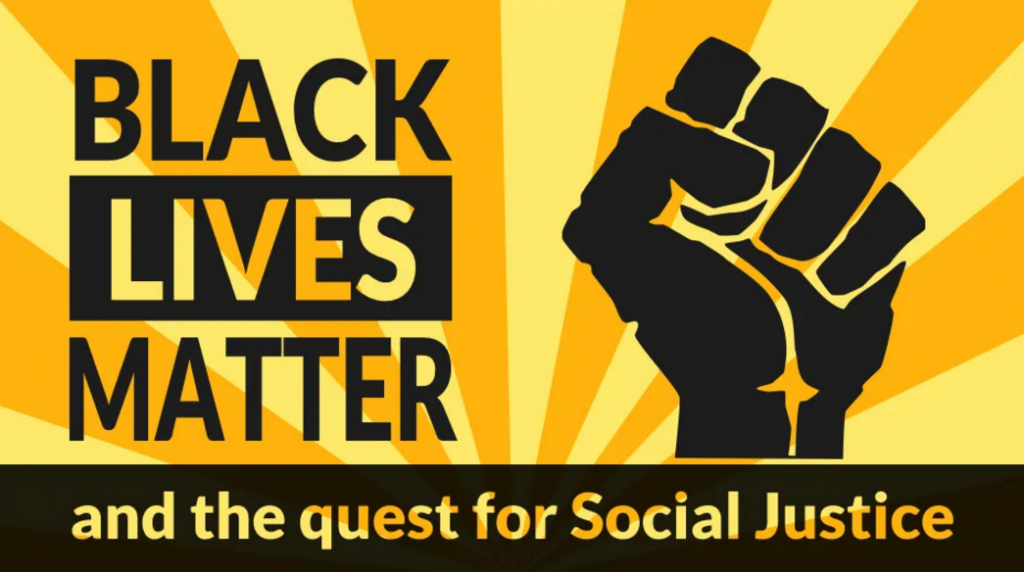
Not Your Typical WOKE
I was confused by the inconsistency in the outrage expressed by Black Lives Matter members. The very phrase “black lives matter” would seem to indicate that all black lives matter, but this wasn’t the reality. I couldn’t understand why BLM wasn’t concerned with the weekly loss of life in Chicago at the hands of gangs and drug dealers. I couldn’t understand why they were not concerned with black-on-black crime, which makes up 70% or more of all black homicides. I couldn’t understand why David Dorn’s life didn’t matter. I couldn’t understand why the life of David Patrick Underwood, a Federal Protective Service Officer didn’t matter. He too was a highly respected and loved black man. He too was killed in the looting and rioting at the hands of those who said they cared about Mr. Floyd. I couldn’t understand why the lives of black people killed in the looting and rioting across the country didn’t matter – numbers which have increased over time. I couldn’t understand why the businesses of minorities that were destroyed, along with minority neighborhoods and homes in the mayhem didn’t matter. A recent study released by insurance companies stated that this cost of destruction has reached 2 billion dollars; this does not include the uninsured. I couldn’t understand why the 18 people killed on the streets of Chicago over a twenty-four-hour period during the initial rioting on May 31st, 2020 didn’t matter. And I couldn’t understand why the 300,000 African American babies snatched from their mother’s wombs each year by Planned Parenthood didn’t matter. (Planned Parenthood is an organization that was born out of racism and the theory of Eugenics, one of the theories which propelled Hitler’s Jewish solution.)
The mantra, the symbol, the catch phrase “black lives matter”, didn’t match up with the reality of their concerns, their focus, and their actions. To quote civil rights attorney and educator Leo Terrell, “apparently only certain Black Lives Matter”. There was a logical disconnect between the name of the cause and their concerns and actions.
The reason for disconnect became clear once I discovered the underpinnings of the organization. This also led me to understand why they had attached themselves to a sister organization, Antifa.
Black Lives Matter’s co-founders are Patrisse Cullors, Alicia Garaza and Opal Tometi. In an interview with Jared Ball of the “Real News Network” in 2015, Patrisse Cullors stated that she and Alicia along with BLM are trained in community organizing and Marxist ideology. In an interview with “Democracy Now” Cullors recalled her training at the “Labor/Community Strategy Center” and identified her mentor as Eric Mann, a member of a radical left militant group “Students for a Democratic Society” and the “Weather Underground”. (The Weather Underground bombed government buildings and police stations in the 1960s and 1970s.) The “Labor/Community Strategy Center” promotes itself as an “anti-colonial, anti-imperial, pro-communist resistance to the U.S. Empire”. I became WOKE, but not in the typical use of the term. I realized that BLM is a Marxist revolutionary organization.
BLM has as one of its core values the dismantling of the nuclear family. This appeared on the website for months until it drew negative attention. It has since been scrubbed, but only for public relations reasons, not a philosophical change in belief.
The dismantling of the patriarchal nuclear family is consistent with Marxist ideology and Marx’s economic theory. Marx contended that the patriarchal family system did not equally value children (chores without compensation) and women (mothering and house chores without compensation), but economically gave men a higher standing because of pay for their labor. The idea was to do away with the patriarchal nuclear family and make all people wards of the state where the state would equally value everyone. It is Marxism that drives BLM’s stance on the dismantling of the nuclear family. More on social engineering and its effects on the black family unit later.
The dismantling of the nuclear family would only prove to proliferate one of the ills that has harmed the black community at large and has further driven it toward extinction. Cultural anthropologists agree that one of the fundamentals for any society to exist is the family structure. Remove it and society crumbles. The Washington Examiner reported in 2017 that 77% of black children born in our country are born into a single parent home. The US Census Bureau reported in 2016 that only 38.7% of black children have both parents at home. The Black family is nearing extinction. It is indisputable that children raised in single parent homes, regardless of race, experience a much greater rate of crime and imprisonment. Single parent homes have a greater instance of poverty and with that a greatly increased chance of children being a victim of crime. Former President Barack Obama stated:
The family is that most important foundation and we are called to recognize and honor what every father is to that foundation…. but if we are honest with ourselves we will admit that too many fathers are MIA [Missing in Action], too many fathers are AWOL [Absent Without Leave], missing from too many lives and too many homes. They’ve abandoned their responsibilities; they’re acting like boys instead of men, and the foundations of our families have suffered because of it. You and I know this is true everywhere but nowhere is it more true than in the African-American community.
If the nuclear family is dissolved, as Marxist ideology aspires, all ethnic groups and all families would suffer this catastrophic fate. Society at large would be threatened. Evidence further demonstrates that government cannot legislate outcome, and its efforts to do so have proven disastrous. Government cannot replace a mother and father in the home and the spiritual and moral influence of God in the lives of people. Again, Marxism drives BLM’s ideology on this issue.
BLM also calls for the disbanding of the police, despite the fact that polls show the black community overwhelmingly desires more police presence. This too has revolutionary implications.
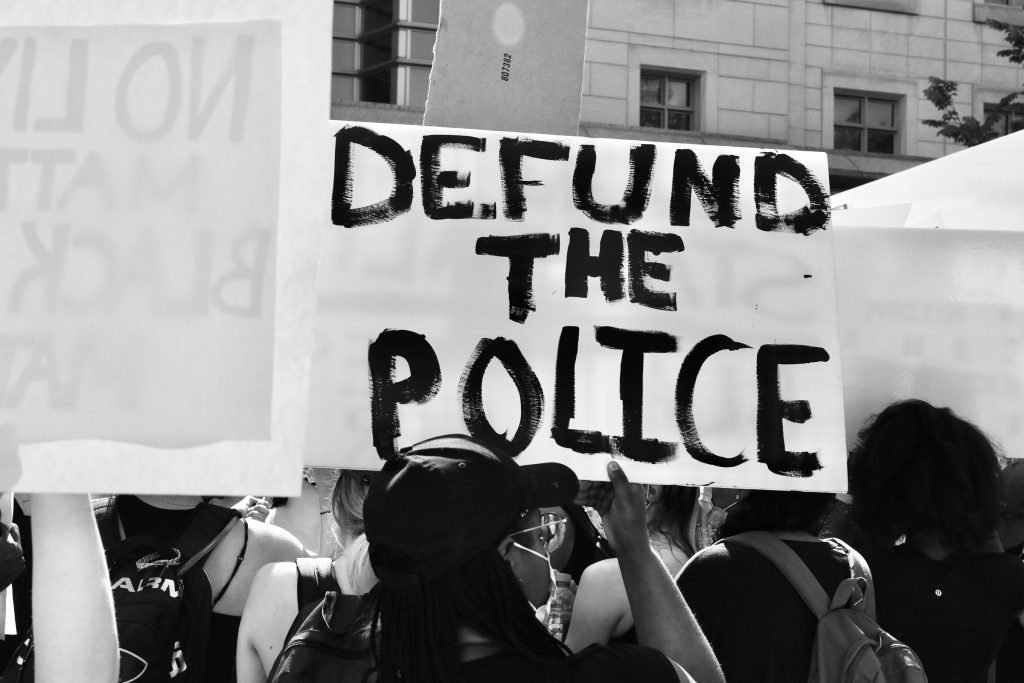
Many of BLM’s stated goals would only serve to hurt the black community, a community they claim to represent. In a forum on Race, Dr. John McWhorter, a professor at Columbia University argued that the anti-racism movement is in reality hurting the black community. He argues that it is really a new religion. (YouTube search string – John McWhorter: Anti-Racism Hurts Black People). (Warning language) McWhorter, who is a black professor, is considered a middle-of-the-road race activist, a self-described “cranky liberal Democrat”, and an atheist. He doesn’t consider himself conservative, but is often labeled as such because of his critique of the contemporary anti-racist movement. Noah Rothman, author of Unjust states: “Spend any time in the vicinity of a committed social justice activist and you are bound to walk away with the impression that his is an almost religious commitment.” (Unjust, Rothman, pg.33-34) There is a cultish aspect to the Marxist ideology which is the foundation of BLM and, as we will see, Social Justice.
Calvin Robinson, a black man and former schoolteacher and assistant principal in the British Public School system, also sounds the alarm on both fronts of BLM and the Social Justice movement. He warns about BLM and “Critical Race Theory” because such is being promoted in the public schools. On “Good Morning Britain” he stated:
Critical Race Theory is used as a power play that seeks to use black people as pawns in their game, despite not addressing the real issues facing the black community. Movements like Black Lives Matter are Marxist organizations who want to destroy our way of life and rebuild it in their image. What we’re seeing here is standard divide-and-conquer.
The bottom line is that BLM’s lack of concern for the totality of the black community’s ills reveals that BLM has little to do with race and solutions for the black community, and more to do with a Marxist cultural revolution which will lead to a Marxist economic revolution and usher in Communism. Race is the façade used for their deception.
Interestingly enough, this came out following the election. When the media called the election for Joe Biden, Biden supporters began to celebrate. These were the same people who’d been supporting BLM in the streets. However, during marches in Washington D.C., BLM activists confronted Biden supporters chastising them. When the Biden supporters said, “We’re with you”, the BLM activists responded, “No you’re not! We want to burn the system down.” In Portland, Oregon, BLM and Antifa attacked the Democrat Party office, breaking windows and setting it ablaze. Then they painted the anarchist symbol on it. This again, after the declaration of the media that Joe Biden had won the election.
So as I stated earlier, I became WOKE in an atypical manner. The veil of BLM’s “racial justice movement” was torn off, and what was revealed was a Marxist revolutionary organization using race as a front for its deception. Over the past several months more and more people have become WOKE like me. As BLM riots and loots, torments and threatens people, assaulting people in cafés, cursing at police officers and lecturing black officers, even assaulting them and trying to assassinate them, some in the media and more in the black community are waking up to what BLM really is, a Marxist revolutionary organization.
Bishop Aubrey Shines, a black pastor with “Glory to Glory Ministries” in Chicago, Illinois, states:
However well-meaning, many who have embraced the sentiment of Black Lives Matter have done so without fully educating themselves on the actual Black Lives Matter movement. The Movement does not seek to address perceived disparities in criminal justice, housing, education, and other areas by restoring equality of opportunity. BLM promotes revolution in American society, not a true realization of the American values of equal personal and economic freedom. It’s this distinction that explains the philosophy behind BLM and why Christians of all races should be leery of its aims.
BLM is a political movement properly understood as a blend of black nationalism and Marxism…By allying themselves with Antifa anarchists and activists of the Democratic Socialists of America (DSA), Black Lives Matter has made clear it seeks a revolution in the political, social, and moral foundations of the United States. (Eight Questions about Race, Shines, pg. 56)
Since BLM was always attached to the Social Justice movement, I next began to explore the Social Justice movement’s foundations.
Social Justice, a Man-made Philosophy for Division and Revolution
In an article by Kevin DeYoung entitled “Is Social Justice a Gospel Issue?”, DeYoung writes:
If “Social Justice” entails specific policy proposals, certain candidates Christians should (or shouldn’t) support, and definite conclusions about economic and racial disparities, mass incarceration, immigration reform, and a host of other debatable topics, then we ought to be extremely cautious about linking something as politically prescriptive as social justice with something as universally salvific as the gospel.
The definition of Social Justice, and its practical application by its proponents, expresses exactly what DeYoung warns of and defines in this quote. Noah Rothman states: “The way in which social justice has been perverted to mean censorship, thought-policing, and inequality in the name of social leveling is a scandal.” (Unjust, Rothman, pg. 33)
The Social Justice movement, while sounding righteous, seeks to divide us. Its roots are found in two schools of thought, both with Marxist underpinnings. These schools were formed as an attempt to explain why the economic revolution predicted by Marx did not occur. These groups formed a philosophical movement known as “Cultural Marxism”. Cultural Marxists combine economic theory with psychology and sociology. One of the two schools of thought forming Cultural Marxism is the Frankfurt school named for its origin in Frankfurt, Germany after World War I. Marxist philosophers such as Habermas, Adorno, and Horkheimer developed what is known as “Critical Theory”. Critical Theory coupled the sciences and pseudo-sciences together to identify what they believed were the cultural practices that kept the Marxist economic revolution from occurring. They believed that art, movies, technology and religion, along with traditional constructs such as the nuclear family, all contributed to keeping the working class from rising up and establishing the revolution.
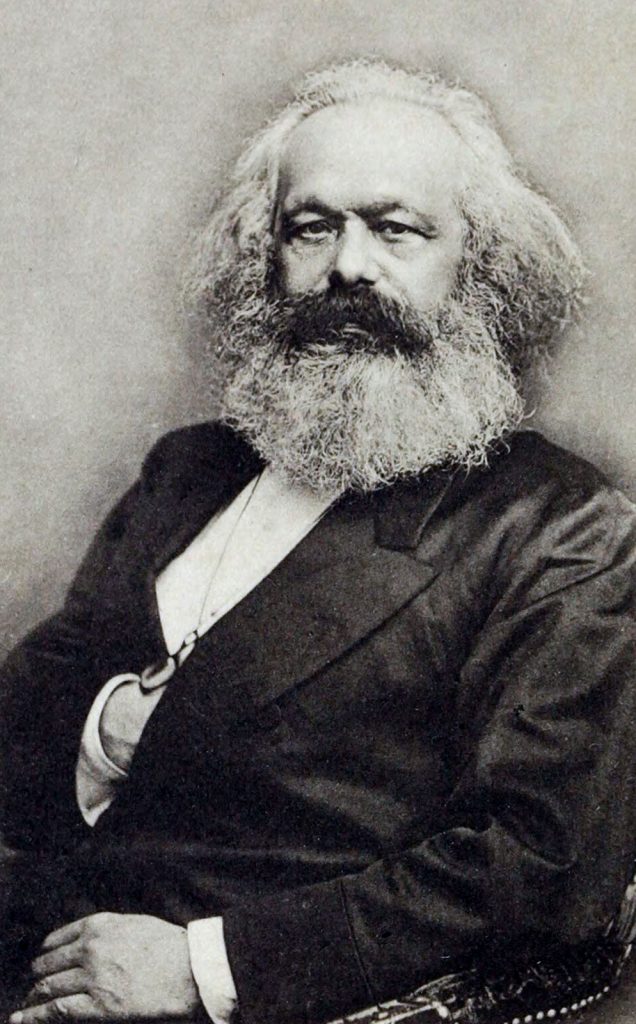
Karl Marx, author of The Communist Manifesto
The second school is known as postmodern philosophy. Postmodernist thought was developed by French Marxists such as Jean Baudrillard, Jacques Derrida, and Michel Fouchet. Postmodernism is a philosophy of skepticism toward and rejection of such concepts as objective notions of reason, human nature, social progress, absolute truth, and objective reality. Postmodernism’s tenets are pervasive in the thought processes of people today, especially the young. Postmodern thought is taught in most universities.
Within the constructs of Social Justice one finds these two threads coming together and forming its foundation. In simple terms Social Justice creates division, which is necessary for a cultural revolution. The philosophy of the Frankfurt school’s Critical Theory, which has birthed “Critical Race Theory”, provides the fundamental “tool” for Social Justice. The French Postmodernist rejection of tradition, historical narrative, traditional morality, reason and absolute truth, provide a redefining of truth to a form which states that opinion trumps data, fact and even science. This too is foundational and provides the “psyche” of Social Justice. The postmodern influence creates what Social Justice advocates call “Standpoint Epistemology.”
As was stated earlier, Cultural Marxists seek to explain why the revolution to overthrow capitalism, western culture, and the Judeo-Christian ethic, failed to occur in the Marxist economic revolution resulting in Communism. In their opinion Marx never accounted for the social constructs which kept those with power in power, and those without power from rising up. In other words, it was more than economics. So to remedy this, the rejection of traditional historical narrative, morality and absolute truth coupled with Critical Theory is being used to develop a cultural shift or uprising. The result is a cultural revolution that will bring about the economic revolution needed to usher in Communism. This is at the heart of Critical Race Theory and what we are seeing on the streets with Antifa and BLM. It is nothing short of an attempt at a Communist revolution to overthrow our government. This is the root of Social Justice.
Critical Theory establishes a four stage approach to Social Justice.
- Identify the disadvantaged group or groups.
- Assess the inequality of outcomes for the disadvantaged groups.
- Assign blame for disparate outcomes by identifying the perceived power group (Hegemony).
- Redistribute power and resources from the “power group” to the disadvantaged groups.
This is the impetus for the cultural and economic revolution.
The goal of Social Justice isn’t justice and it is not redemption; it is chaos and vengeance. Ibram X. Kendi, a black author and anti-racist activist states: “The only remedy to past discrimination is present discrimination. The only remedy to present discrimination is future discrimination.” I personally applaud Kendi for both his honesty and logic. To follow Social Justice to its logical end would result in what Kendi proclaims. As Christopher Caldwell concluded after reviewing Kendi’s work: “[Kendi] says we must fight discrimination with discrimination, and that it’s racist to disagree.”
Social Justice positions people against other people by grouping them and dividing them. We see Social Justice “divide” or “group together” people by race, gender, and sexual orientation/sexual identity. Social Justice uses a philosophy called intersectionality which further subdivides people by groups and places judgment upon them based on degrees of oppression assigned by intersectionality’s metric. Therefore, as an example, a black female, transgender individual can check off three boxes in intersectionality. She checks the box for biological sexual gender, “female”, another for color/ethnicity, “black”, and still another for her/his perceived gender, “transgender”. Therefore, she is more oppressed than a black female, because of her transgender identity.
Within Social Justice the idea of individualism is rejected. In fact, some see anyone who holds the idea of individualism, and especially individual responsibility, as being racist. In White Fragility, Robin DiAngelo’s New York Times bestselling book – a book being used as assigned reading in some of our Christian schools – DiAngelo writes:
Individualism claims that there are no intrinsic barriers to individual success and that failure is not a consequence of social structures but comes from individual character. According to the ideology of individualism, race is irrelevant. Regardless of our protestations that social groups don’t matter and that we see everyone equal, we know that to be a man as defined by the dominant culture is a different experience than being a woman…These groups matter. [bold emphasis mine]
With this background in mind let’s see whether the result of this philosophy remedies racism or perceived oppression. To repeat, individuals do not matter, nor are they considered; you are simply assigned a group. Groups are analyzed through the application of Critical Race Theory and the further application of the theory of intersectionality. Therefore, what are the results? The results are racist on many fronts, the very thing that Social Justice claims to oppose.
- It declares the hegemony as racist while creating feelings of animosity by the perceived “oppressed groups” and within the “subgroups” against the hegemony. While Critical Race Theory would argue that an oppressed group or subgroup could not be racist – because you can only be racist if you have both power and prejudice – the created feelings of prejudice, animosity and even hate in the lives of the assigned oppressed groups and subgroups toward the hegemony is racist.
- The hegemony is declared intrinsically racist regardless of the feelings or beliefs of individuals within the identified ethnic group. Simply put, if you are a part of the hegemony, you are racist, period. No repentance, no religious experience or the embracing of an ethic that rejects ill feelings towards others who are deemed different from you, by color, culture or sexual identity matter. This in itself is a judgment upon an ethnic group and is solely based on the color of their skin. This is the very definition of racism.
- It declares all groups and subgroups not part of the hegemony, as inferior by their perceived and defined “oppression” – which in itself is racist.
- It declares all groups and subgroups incapable of progressing in society; again a judgment of inferiority – which is racist.
- It ignores all data and facts which demonstrate the error in their assumption/opinions/Standpoint Epistemology. Racism is established and assigned by the feelings, prejudice or opinion of the identified oppressed groups. This is the very definition of racism.
This last point is another proof of the influence of postmodernist thought and the rejection of fact, data and science. As Thomas Sowell stated in a tweet (@ThomasSowell): “It is usually futile to try to talk facts and analysis to people who are enjoying a sense of moral superiority in their ignorance.” Noah Rothman adds insight to this fact when stating: “Perhaps the simplest method for distinguishing classical liberals from militant social justice advocates is the extent to which the latter are threatened by the articulation of challenging ideas.” (Unjust, Rothman, pg. 63)
The Absurdity of the Deception
While Social Justice includes race (ethnicity), sexual orientation and gender identity, as well as radical feminism, the front-page issue today is race (ethnicity). In particular the focus has largely been on black Americans and their economic and educational disparity in the country. Social Justice advocates have identified “white” people as the hegemony. In particular natural born, white males, who identify as cisgender, heterosexual and able bodied. White females fall under the category of oppressed minorities based on the fact they are female, even though females outnumber males. Oddly enough, even though white females are listed as oppressed, they cannot speak to matters of race due to their whiteness.
The identification of white people in general as the hegemony has led to what has become a popular term in Social Justice circles – “White Privilege”. All the ills suffered by people of color, especially black Americans in the Social Justice ladder of oppression are due to white privilege. The “People’s Church” in Cincinnati, Ohio is a great example of a fellowship which has embraced Social Justice and Critical Race Theory whole cloth. The “People’s Church” website states:
Understand Privilege. It is also important, as white people, for us to remember that we will never “get it.” We are all subject to racist ideas and we will never fully understand the experience of our Black community members, no matter how much we read, study, think or learn, or how many Black friends we have, or even if we have Black romantic partners or children. [bold emphasis mine]
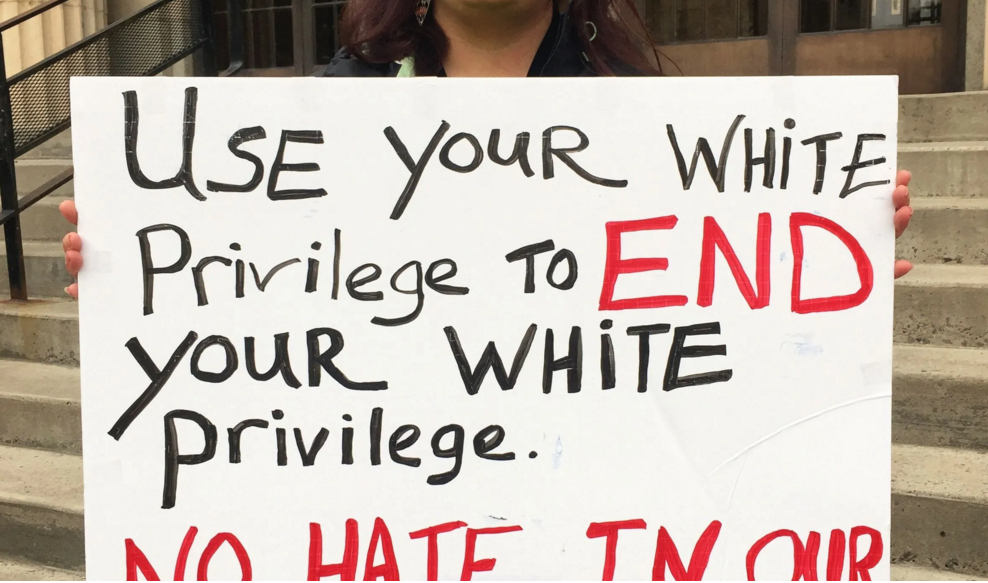
This statement is an example of what Dr. Voddie Baucham calls “Ethnic Gnosticism.” Gnosticism is the idea of having special insider knowledge that outsiders cannot have. Dr. Baucham is a black pastor, missionary and dean of a Bible college. He has spoken out against the Social Justice movement and coined and defined the phrase “Ethnic Gnosticism”, stating that “…because of someone’s ethnicity you know whether something is racist,” (insider, special knowledge).
According to those who hold to and advocate Critical Race Theory, only white people can be racist because of white privilege. In simple terms, you can’t be racist if you lack power. So to be racist you must harbor prejudice and hold power over oppressed groups, and only white people possess the dynamic-duo. So racism, or being racist can only apply to the hegemony. It is impossible for anyone of an oppressed group to be racist regardless of prejudice or hatred harbored in their heart toward someone of another color (ethnicity) since they are not white. Furthermore, a white person who has no ill feelings or prejudice toward another person of color is still deemed racist due to their whiteness and white privilege. It’s important to understand that this tenet of Social Justice and Critical Race Theory is foundational to proclaiming that every institution of government, of higher learning, of religious belief (especially Christianity), are systemically racist. The proponents of Social Justice argue that the hegemony (white people) have consciously and unconsciously established systems which benefit the hegemony and disadvantaged all identified oppressed groups.
An example of this belief was expressed by Shaun King and his call to persecute the Christian church at the height of the rioting by Antifa and BLM in the summer of 2020. King is a Co-founder of the “Real Justice PAC” and was a member of Bernie Sander’s presidential campaign staff. King announced that the Social Justice movement and BLM should target statues of Jesus and break stained glass windows in churches to wipe out the “White Supremacist’ religious history” that he and others identify as a system promoting racism and the opiate of the people. While those like King take a more radical stance calling for the end of the Christian faith, others within Christendom call for reform in what they believe to be systemic racism within the church. They too embrace the tenets of Social Justice and Critical Race Theory.
Other examples within evangelical denominations are the development of position papers in support of Social Justice doctrines and studies by which it is declared that the church’s structure is “systemically racist.” Groups have formed at all levels of leadership, along with academia and clergy, embracing and mandating anti-racism training, going so far as to include suggested follow-up evaluations and metrics by which progress is measured on individual pastors. These suggested – and in some cases mandated – steps are in harmony with Critical Race Theory. Such training and evaluation based on Critical Race Theory and the declaration of systemic racism within the institution of the church assume at their foundation that all white people are racist, regardless of what is in the heart.
The acceptance of Critical Race Theory and its declaration of intrinsic racism among all whites leads to conflict within the Christian doctrine of salvation. It is possible that those who adhere to this philosophy will deny what I am about to suggest: The logical path of this philosophy calls into question the salvation and entire sanctification of those who are white and profess such experiences. Racism has no place in God’s kingdom. Such ill feelings, prejudice and oppression would be judged by God as damnable.
Such is the narrative of Social Justice and Critical Race Theory. The problem in America and the problem with our institutions is simply white people. Taking Critical Race Theory to its logical end leads to the conclusion that the only remedy would be the punishment of white people. This is why I stated earlier that I respect Ibram Kendi’s honest conclusion: “The only remedy to past discrimination is present discrimination. The only remedy to present discrimination is future discrimination.”
By embracing Social Justice and Critical Race Theory, what are we left with? Injustice. As Noah Rothman states: “The inevitable result of this trend will be tribalism, oppressive communitarianism, and the perception that individuality is a dangerous form of deviancy. Social Justice…is the very antithesis of justice. It professes to value equality, but its central tenet is vengeance. It is as vulgar as it is seductive.” (Unjust, Rothman, pgs. 13-14)
The Fog of Seduction
Years ago I took a motorcycle trip with a group of men from the church. We rode through the back roads of Tennessee, West Virginia, Virginia and North Carolina. On that trip we camped at a motorcycle campground one night. The next day we traveled over a section of the Blue Ridge Parkway, a beautiful ride which follows the curves around the tops of the Blue Ridge Mountains. The scenic views are amazing. But on the morning that we traveled the Parkway heading toward the “Dragon”, a famous motorcycle run, there was a heavy fog in the mountains. We averaged a speed of around fifteen miles per hour. You could only see the taillight of the bike in front of you, and only if you stayed within a thirty foot range. Any further back in distance and the taillight would fade.
We traveled the same route returning to the camp late that afternoon. By now the fog had completely lifted, the sun was bright and the sky blue and we could see the green valleys and mountain tops for miles. It struck me when returning how my perspective had changed. The morning fog caused me to focus solely on the taillight of the bike in front of me. I had no awareness of other bikes or the fact that to my left beyond the edge of the road was a drop of hundreds of feet down the mountain side. I couldn’t see the reality around me because my reality was the taillight of the bike in front of me and the fog which caused me to intensely focus on the taillight. I couldn’t see the beauty of the mountains nor the dangers of the road’s edge. Reality was limited to my perspective, a taillight twenty to thirty feet in front of me. This is the reality and seduction of Social Justice.
Social Justice and Critical Race Theory conclude that white people and white privilege is the root of oppression for all people of color and other identified oppressed groups. Since white people have historically made up the largest people group in our country, all systems created are systemically racist because white people played the majority role in creating them. Government, education, the workplace and even church institutions are assumed to have in place a system in which white people have advantage over all oppressed people groups. This is the taillight of the intense focus of Social Justice. The fog, for example, is the disparity seen among the black American community. By fog I mean that any other explanation for disparity is dismissed by focusing on the taillight of white privilege. All disparity is defined by a single viewpoint. Clarity cannot come into view because of the bias of Social Justice. Other possible causations are dismissed outright and declared racist because of Social Justice Doctrine established by Critical Race Theory. Data which may reveal other causes to disparity are dismissed or ignored. With such a narrow and intense focus on blaming the hegemony for all ills, a victim mentality is established within minority groups by Social Justice criteria. This leads to ignoring at best and rejecting at worst solutions which could have the positive effect of social lift and the reduction of disparity. So let’s look at a few examples of data which are often dismissed by Social Justice advocates and examine some differing perspectives from black writers, politicians, professors and clergy on the causation of disparity within the black American community in particular.
The data stated is just a very small sample of greater data which counters the Social Justice narrative. If white privilege was the sole source driving economic disparity between white people and people of color in America, white people should be at the top of every economic, educational and societal statistic. If all systems are racist and established consciously or unconsciously to give advantage to white people then this should be demonstrated by the data. However, the data does not support this premise.
According to the census bureau, white people in America rank sixth in median income behind Asian Indian, Taiwanese, Chinese, Japanese and Korean. On the educational front white students, due to their white privilege, should score better on college entrance exams. But SAT scores from 2017 show that Asian applicants scored 19% higher than white students, despite the fact that Asians are considered oppressed minorities in the Social Justice world. Somehow five other minority people groups, all of Asian descent, achieved higher educational and economic standards than whites. These are just two examples where the data calls into question the Social Justice narrative.
One narrative which ignited the 2020 outrage, leading to demonstrations, rioting and looting was police brutality. The believed narrative is that white police hunt down unarmed black men and murder them indiscriminately. Bishop Aubrey Shines points out that,
…according to the Washington Post database police fatally shot nine unarmed blacks and 19 unarmed whites in 2019. These numbers were down from 38 and 32 respectively, in 2015. Though every police-related killing is a tragedy, the nine unarmed black victims of police shootings represent just 0.1 percent of all blacks killed in 2019. (Eight Questions About Race, Shines, pg.22)
Again, the data calls into question the Social Justice narrative.
It is impossible to state every piece of data which questions Social Justice’ assertions. These are just a few quick examples of many which cause one to pause and wonder at the validity of the Social Justice narrative. The narrative that “white males” cause all social disparity problems and ills is the fog which keeps other possible problems from being addressed in society and in the black community in particular.
Could there possibly be another explanation for the demise of the black American family and the economic struggle for black Americans, other than white people and white privilege? Could there be another explanation for the disparity?
In researching this I did not turn to white researchers or white experts on the topic; instead, I turned to black Americans who represent differing walks of life. It’s a bit humorous in a dark way that the celebrated writings on Social Justice and Critical Race Theory are predominately written by white people instructing other white people that they have no moral standing when it comes to the issues at hand. Yet white people are lecturing white people about issues in black America. Furthermore, any black American who has a differing view is somehow dismissed. The illogic is maddening, for if they truly believe what they write and profess – that white people have no moral standing to speak about such ethnic disparity – they should remain silent. But I digress.
One of the individuals I turned to first was Dr. Shelby Steele who caught my attention that evening on Laura Ingraham’s show at the height of the rioting by Antifa and BLM. As mentioned earlier in this writing, Ms. Ingraham asked Dr. Steele what it would take to stop the rioting and looting in the streets. His answer stunned me. “The rioting will stop when white people have confidence again in their morality and put their foot down and say, ‘Enough is enough’.” This statement drove me to read Dr. Steele’s work entitled White Guilt. I believe Dr. Steele’s work paints an accurate portrait of the progression of what we are seeing today resulting in the Social Justice movement and BLM. I will use his work to lay the foundation for a more realistic view of where we are and what the true driving forces behind the disparity of black Americans are economically and educationally. A lifting of the fog.

Antifa Flag
Dr. Steele speaks of white guilt throughout his work; it’s the theme. White guilt is explained as the moral awakening which occurred in the conscience of white America as a result of the Civil Rights movement led by Dr. M. L. King. Dr. Steele defines white guilt as follows: “…white guilt [is]…the vacuum of moral authority that comes from simply knowing that one’s race is associated with racism.” (White Guilt, Steele, pg. 24) He further describes the results of white guilt.
Whites (and American institutions) must acknowledge historical racism to show themselves redeemed of it, but once they acknowledge it, they lose moral authority over everything having to do with race, equality, social justice, poverty, and so on. They step into a void of vulnerability. The authority they lose transfers to the “victim” of historical racism and becomes their great power in society. This is why guilt is quite literally the same thing as black power. (White Guilt, Steele, pg. 24)
What is interesting is that Dr. Steele, a man who earlier in his life embraced the black power movement, has come to view white guilt and militant black power as the problem. For example, Dr. Steele states unequivocally that the result of the Civil Rights movement was that “…we blacks are free.” (White Guilt, Steele, Pg. 26) He goes on to say that once black Americans realized their freedom, they were faced with two new realities: (1) they had no grievance anymore, and (2) they were faced with personal responsibility. No longer could they place blame at the feet of oppressive racism. In fact, he states that the idea of desegregation, which M. L. King embraced and saw as the solution to the racial divide in society, has been embraced over time by most people.
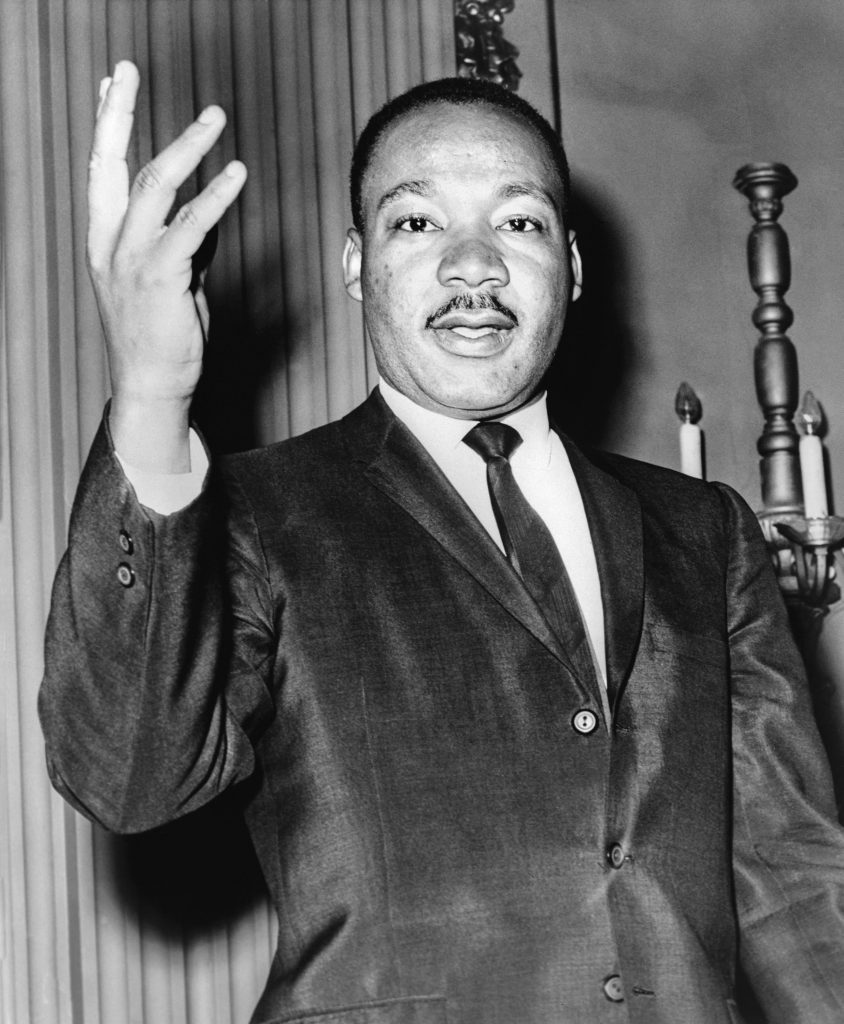
Dr. Martin Luther King, Jr.
Yet, Steele contends, desegregation has been rejected by some leaders in the black community. Those who reject King’s dream of desegregation see desegregation and integration as removing the identity of black people, along with the grievance of racism. We see examples of this in the writings of black liberation theologians such as James Cone, Nation of Islam leader Louis Farrakhan, and the preaching of Jeremiah Wright, a pastor of a church where such celebrities like Oprah Winfrey and former President Barack Obama attended. These voices in the black community call for segregation. In fact, many in the BLM movement call for segregation. Steele calls this longing for segregation, a “longing for Eden”. He writes:
Today there is much talk of “community” among blacks just as America has ceased to impose community on us. And in this talk there is a looking backward for that lost Eden when segregation made racial interdependence our only option. Today it is fashionable among blacks to say that integration was a failure, which is to imply that our true strength is separatism. Today you can witness blacks everywhere enforcing on themselves the very separatism and community that segregation so recently imposed – black churches, civil rights confabs that are far more social than political, “state of black America” gatherings as if we still share a singular destiny, black professional associations by the hundreds, black student associations of every variety, even a congressional black caucus, not to mention black caucuses in many state legislatures. Now in the promised land of freedom we reach for the lost Eden of separatism. (White Guilt, Steele, pg.26)
The segregationist mentality referred to by Steele, and preached by Cone, Farrakhan and Wright, has been embraced by black students demanding segregation in dorms on college campuses. And a recent example is a group of one hundred black people representing several families, purchasing one hundred acres in Georgia to develop a “black only” community.
Steele also addresses another result of the loss of grievance and the fear of facing personal responsibility. A new grievance has risen, a type of new goal or moving of the goal posts as modern nomenclature states – “outcome”. Steele says that the Civil Rights movement accomplished everything it set out to do. White people realized the sin of Jim Crow. White people became aware of the sins of attitudes toward blacks that demonized them or viewed them as less than human, or less than equal in value. This resulted in positive change. For example, over time culture shifted and what was once thought of as a taboo has now been fully accepted; the integrated family – people of color marrying white people and having families. The dream of King, to judge people not by the color of their skin but by the content of their character, has largely been accepted into the fabric of American culture. This is in part the reason for the longing for Eden among some blacks and the call for segregation. Lose your identity based on color and you lose your grievance. So the gains in cultural acceptance concerning equality and the value of each man has now been replaced by a new mantra – equal outcome.
Steele recalls hearing this first from Dick Gregory, a comedian and civil rights advocate in the sixties and seventies. Gregory was a Marxist. Steele heard Gregory speak one night and recalls:
That night was my first encounter with the essential Marxist vision of American racism that would frame the racial debate for the next three decades. It was a precursor to the now common argument that racism is “systemic,” “structural,” and “institutional”…The Marxian emphasis on structures and substructures gave the new militant leaders of the time an infinitely larger racism to work with, a systemic and sociological racism that was far more “determinative” than the simpler immoral racism of the Martin Luther King era. (White Guilt, Steele, pgs. 32-33)
What I share from Steele now is interesting in light of the current “WOKE culture,” Social Justice movement, and Critical Race Theory, which dominates the landscape today. Steele writes:
…since the sixties, black leaders have made one overriding argument: that blacks cannot achieve equality without white America taking primary responsibility for it. Black militancy became, in fact, a militant belief in white power and a correspondingly militant denial of black power.
Black leader after black leader argued that we could not pick ourselves up by the bootstraps, because we “don’t have any bootstraps.” But this humiliating plea for white intervention only projected whites as powerful and blacks as helpless. So, finally, we embraced a black militancy that argued nothing more strongly than our own perpetual weakness – or, put it another way, our inferiority. To be a proud and militant black after the sixties, you screamed black power in order to induce the application of white power. And you lived by an ethic that still sees full responsibility as oppression, if not racism, when applied to blacks. Still today, the best way to make a black leader mad is to say to him that black Americans are capable of being fully responsible for their own advancement. [bold emphasis mine]
This is black militancy of inferiority that assumes the continuing inferiority of the people it tries to speak for. And this is where it again meshes so perfectly with white guilt, which always assumes a nearly intractable black inferiority. Because American institutions stand in such pressing need of moral authority, they cannot wait for blacks to develop a true equality of competence out of which they could win entrée on merit. Therefore, since President Johnson’s Howard University speech, racial reform has focused on what Johnson called equality “as a result.” (White Guilt, Steele, pgs. 60-61)
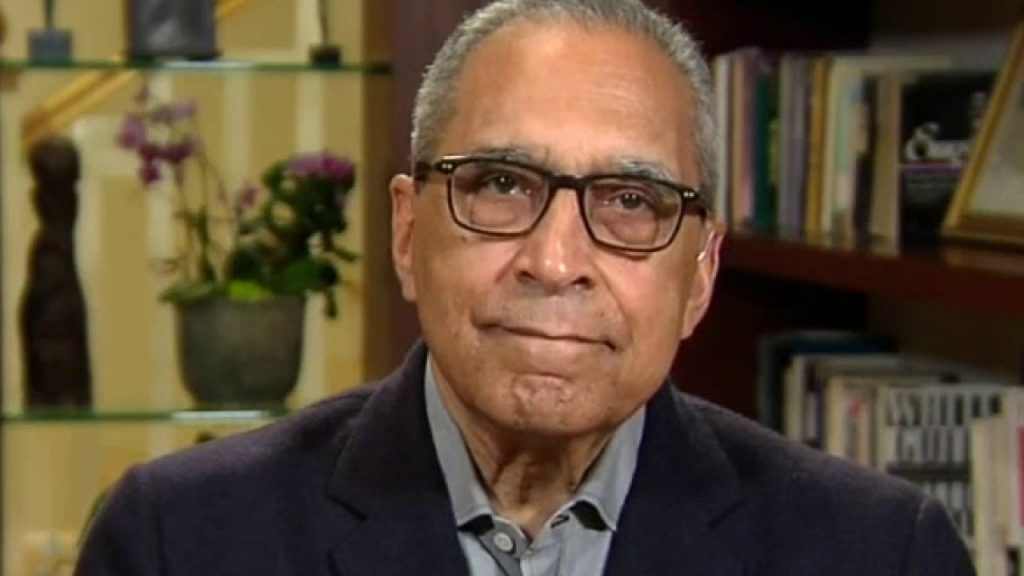
Dr. Shelby Steele
As stated, there was a shift from the Civil Rights movement of M. L. King to that of the black militancy movement or the black power movement. With that shift, the objective that men are all born with value and equality moved to the measure of equality as “outcome”, a Marxist economic principle. This is the call of BLM today as well as groups like the Democratic Socialists of America. It was this shift that President Lyndon Johnson embraced in his speech at Howard University and was part of his war on poverty and the introduction of the modern welfare system.
So how has such social engineering worked for black America? Let’s look briefly at the role of government and the outcome it has produced concerning the black family and community. Black families were largely intact until the passage of President Lyndon Johnson’s war on poverty coupled with the 1964 Civil Rights Act. The Civil Rights Act had been promoted by President Kennedy before his assassination. In his book The Iron Triangle, Vince Everett Ellison states of President Kennedy’s address:
The President…made a crucial mistake: instead of pressing for the legislation because it was constitutionally and morally correct and understanding that government could and should only assist their citizens in securing their freedom, his rationale rested on the erroneous and then new-age belief that government could guarantee outcomes and could replace the individual as the guardian of their social-economic future…He believed that government intervention could guarantee things that only a combination of education, work, risk, morality, and freedom, all activated by personal initiative, could attain. (The Iron Triangle, Ellison. pg. 3)
While Kennedy set the table for the government to guarantee outcome, it was the legislation found in the war on poverty, Johnson’s brainchild, which has done the real damage to the black community.
Ellison, a one-time devoted Democrat, who believed that many of the problems faced in the black community were foundationally a result of racism, explains that as a result of government intervention based on the sixties legislation, black women and children are encouraged to become wards of the state. It has shoved the father out of the home by no longer needing him for support, as the government has become the father. The fathers of children no longer need to exercise responsibility for their family or themselves. Ellison, a Christian, has come to realize the folly in the Social Justice narrative. Dr. Shelby Steele agrees with Ellison, as he writes: “…poverty came to be seen as a condition unrelated to the dysfunctions of those who suffer it, and always treatable by the ‘interventions’ of government and other institutions.” (White Guilt; Steele, pg. 121)
As Ellison studied the history of the black family in America, he found that the black family and black people in general were more cohesive and fruitful in community before government intervention. This in spite of Jim Crow and other sinfully oppressive and racist rules and practices of the past. Ellison states:
On Feb. 23, 2017, Forbes Magazine reported that by 1905 Tuskegee Institute had produced more self-made millionaires than Harvard, Yale, and Princeton combined. The median income of White men tripled between 1939 and 1960 from $1,112.00 to $5,137.00 but in the same period the income of Black men quintupled from $460.00 to $3,075.00 and the Black poverty rate fell from 87% to 47%. The facts illustrate that before 1960 Black Americans were progressing at faster rate than any racial group in America…Before 1960, in the midst of extreme material poverty and political exile, Black America, like the rest of America, enjoyed a culture of life. They married, had children, praised GOD, and respected each other. Their economic progress after WWII had outpaced all other American ethnic groups. Prison, divorce, crime, drugs, and laziness were very uncommon. (The Iron Triangle, Ellison, pg. 6)
But this changed with Lyndon Johnson’s war on poverty coupled with the 1964 Civil Rights Act. What is even more disturbing about the legislation is that the destruction of the black family unit and their diminished rise in prosperity may have been purposeful. Ellison comments on the impact of the “Man in the House” rule:
It required welfare workers to make unannounced visits to determine if fathers were living in the home – if evidence of a male presence was found, cases were closed and the welfare checks discontinued. It provided a disincentive to marry and for fathers to have any contact with their
Children. It didn’t just declare war against fatherhood, it declared war against Black men specifically. (The Iron Triangle, Ellison, pg. 153)
Without the father present, the breakdown of the black family unit was guaranteed. With the breakdown of the family unit, the results were cast in stone. Poverty, crime, single parent homes and growing economic and educational disparity were assured. The cycle would continue from generation to generation as dependency on the government became the main source of survival. As Ellison states: “It was evil brilliance.” (The Iron Triangle, Ellison, pg. 153)
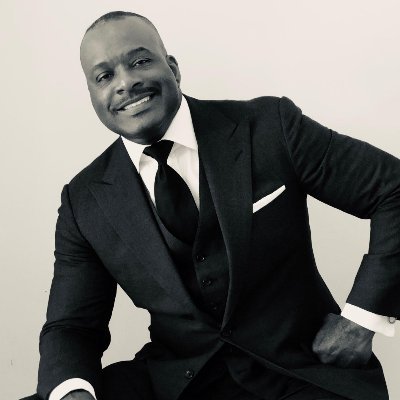
Vince Everett Ellison
For many black people who dared to look and found the Social Justice narrative wanting, the problem became obvious, it was the government and themselves. The entire “Blexit” movement is a response to the atypical WOKEness. The consequences of government intervention and black militancy has resulted in the destruction of the black family and created a culture of dependency. As Ellison writes: “…the concept of White privilege in the Liberal White community and the mainstream Black community is the backdoor way of codifying White supremacy and Black inferiority under the guise of compassion and care.” (The Iron Triangle, Ellison, pg. 88) Bishop Aubrey Shines states: “The real war against blacks takes the form of multigenerational welfare dependency, abortion of black babies, drug addiction, and the rise of ‘gangsta’ culture that glorifies violence and misogyny.” (Eight Questions about Race, Shines, pg. 56)
It is both easy and lazy to simply attribute all ills of a people group to another people group. Racism is a problem in America. It’s a problem between tribes in Africa. It’s a problem between class groups in India. It’s a problem wherever one wants to be elevated over another, or despises another due to the treatment they may have received or the differences that they have in appearance and culture. It’s easy to look at the visual differences, the color of the skin, or the accent of the speech and create bias and even hatred in the heart. It’s more difficult to take Jesus’ approach of grace and truth. Jesus did not deny the sin of the woman caught in adultery, nor did He condemn her. His truth acknowledged the sin and forgave, then He told her to not sin any longer. In other words, change your destructive behavior.
What good do we do when we create a false narrative as an answer to a problem? How does whiteness solve the problem of pregnancy out of wedlock, which is rampant among the poor of all colors? How does whiteness solve the results of single parent homes, such as dropping out of school, drugs, and crime? How does whiteness solve the problem of moral decay in our communities? These are not just black America’s problems; they are America’s problems. How does whiteness solve the destructive results of a government structure that traps people in perpetual poverty? Again, not simply a black American problem.
Bishop Aubrey Shines writes:
Maligning all white people as by some measure racist ignores the history of racial justice in the United States. Whites have been participants for civil rights going back to the nation’s founding. Assigning categorical blame to a single race and then further maligning them with the label of “white fragility” when individual members of that race protest such heinous suggestion is akin to moral blackmail. It’s also attempting to address one injustice by perpetrating another. Leveling indiscriminate charges of racism without evidence becomes its own sort of racism. That, of course, runs counter to Christian values as well, and can infect black people just as much as whites. (Eight Questions about Race, Shines, pgs. 9-10)
He continues: “The anti-racism ideology is intellectually bankrupt and robs everyone of individual responsibility and personhood in the eyes of God.” (Eight Questions about Race, Shines, pg. 16)
Is it possible that there are other causes which have brought about the disparity in poor communities, especially the black community? Could the lack of morality and responsibility resulting from government programs that trap people in poverty be to blame? Could it be that these programs were created and maintained to produce guaranteed votes from a dependent population so that politicians could remain in power? Is whiteness the real cause of all ills? Is “outcome” based equality a biblical doctrine or a manmade philosophy? When the fog lifts, and you can see with clarity, the issue is not as simple as white privilege.
The New WOKE
I began this letter by defining deception. I stated: Deception is defined as “the act of causing someone to accept as true or valid what is false or invalid”. “Social Justice” is the deceptive philosophy that has captivated the minds and hearts of many well-intentioned Christians. It is bankrupt of both intellectual legitimacy and spiritual truth. It appeals to the emotions and feels like justice, but its result is injustice, division, oppression and hatred as expressed in the WOKE cancel culture. To speak what I have written on many Christian college campuses as a professor would most likely result in a petition by students demanding my dismissal. To speak what I have written on many Christian campuses as a student might result in my removal from any student government position, being silenced, ostracized and labeled racist by my peers. The liberal arts philosophy of expressing ideas and exploring theory is only tolerated if what is expressed conforms to the narrative of Social Justice and Critical Race Theory. There are no longer safe places to express diverse opinion or alternative viewpoints. Many students feel it is best to stay silent, even among peers, fearing retribution if they say something that runs afoul of the ever-shifting speech code. So they play the game to keep from being persecuted. No doubt many faculty and administrators will dismiss these statements as fictional, but have they taken the time or developed a means by which such students can safely express their thoughts and fears? The cancel-culture is what Rod Dreher, author of Live Not by Lies calls “soft totalitarianism.”
The Apostle Paul, writing to the house church in Colossae, warned: “See to it that no one takes you captive through hollow and deceptive philosophy, which depends on human tradition and the basic principles of this world rather than on Christ.” (Colossians 2:8) Social Justice and Critical Race Theory are a hollow and deceptive philosophy built on human tradition and our fallen world’s basic principles. Scott David Allen quotes from James Lindsay and Mike Nayna: “According to the biblical worldview, people ‘are children of God, fashioned in His divine image.’ [According to] Social Justice, we are children of society, fashioned by its social constructions and the power dynamics they maintain.” (Why Social Justice is not Biblical Justice, Allen, pg. 1, quote by James A. Lindsay and Mike Nayna) Yet, Social Justice is being embraced by our academia and taught in our universities and voiced by our student bodies. It has been embraced by some of our district leaders and clergy in organized movements within the church. And this philosophy is professed in varying degrees by former leaders and current leaders who are sympathetic to its teachings at the highest levels of the church.
I asked two questions at the beginning of this writing: “Is Social Justice compatible with true biblical justice?” And more importantly, “Is Social Justice compatible with the gospel of Jesus the Christ?” Again, the answer is “no” on both counts.
My fear is that Social Justice is being confused with biblical justice and is being taught as such. John Stonestreet, President of the Colson Center for a Christian Worldview states: “It’s no good having the same vocabulary if we’re using different dictionaries.” (Why Social Justice is not Biblical Justice, Allen, pg. 1) Scott David Allen writes: “To recognize a counterfeit, you have to first know the genuine article.” (Why Social Justice is not Biblical Justice, Allen, pg. 5) Both statements are good to keep in mind. So I will finish this letter by establishing a brief understanding of biblical justice and comparing it to Social Justice.
Social Justice can be defined as: “The tearing down of traditional structures and systems deemed to be oppressive, and the redistribution of power and resources from oppressors to victims in pursuit of equality of outcome.” (Why Social Justice is not Biblical Justice, Allen, pg. 43)
Allen defines biblical justice as:
Conformity to God’s moral standard, particularly as revealed in the Ten Commandments and the royal law: “love your neighbor as yourself” (James 2:8). There are two kinds of justice. (1) Community justice is living in right relationship with God and with others. Giving people their due as image-bearers of God. (2) Distributive justice is impartiality rendering judgment, righting wrongs, and meting out punishment for lawbreaking. Distributive justice is reserved for God and God-ordained authorities, including parents in the home, pastors in the church, and civil authorities in the state. (Why Social Justice is not Biblical Justice, Allen, pg. 24)
Kevin DeYoung, putting the results of biblical justice in plain terms, states: Practically, justice means “following the rule of law, showing impartiality, paying what you promised, not stealing, not swindling, not taking bribes, and not taking advantage of the weak because they are too uninformed or unconnected to stop you.” (Why Social Justice is not Biblical Justice, Allen, pg. 22)
Note that Social Justice deals with systems, groups and structures, while biblical justice deals with the individual and God ordained entities. Now let’s briefly consider the origins and goals of Social Justice compared to biblical justice.
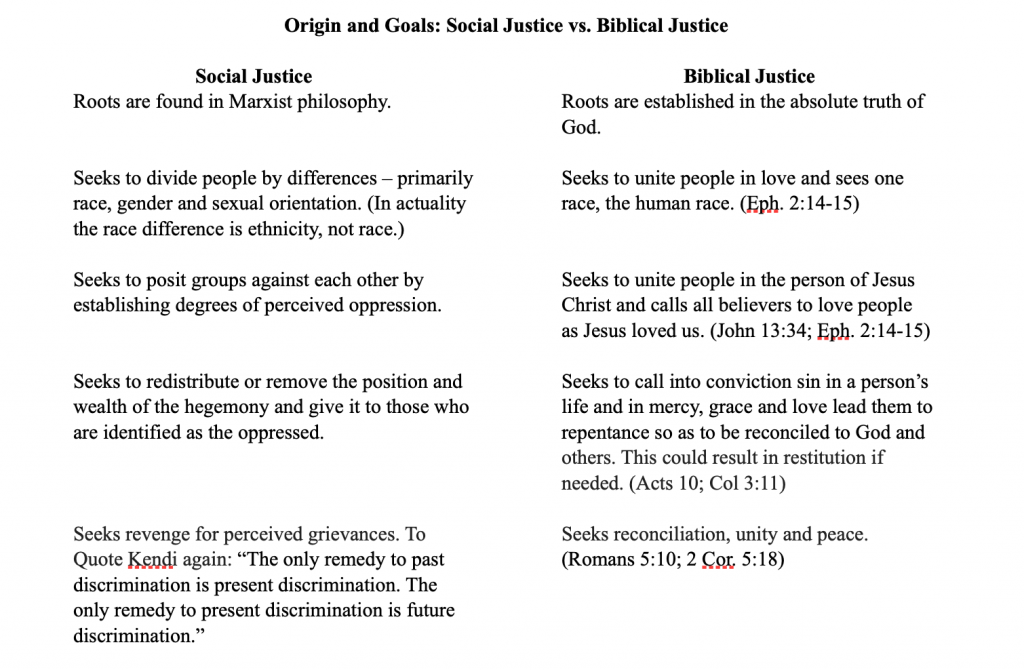
While biblical justice has a goal of redemption and reconciliation, Social Justice has a goal of revenge for past sins or punishment for perceived grievances. With its roots in Marxist philosophy, it plays out in the following way.
- Obsession with power, oppression, and victimization – It sees a world divided between evil oppressors and innocent victims in a zero-sum power struggle; nothing exists outside these categories.
- Use of tactics reminiscent of Mao’s Cultural Revolution and an “ends justifies the means” methodology.
- Fixation on class, race, gender, and sexual orientation as defining characteristics of personal identity – individuals are “nondescript representatives of their taxonomic class.”
- Hostility toward Judeo-Christian religion, particularly in its beliefs about family and sexuality.
- Antipathy toward the natural family, and specifically the authority of parents with their children, and the authority of the husband in the home.
- Fixation on redistributing wealth and power by an ever-larger state.
(Why Social Justice is not Biblical Justice, Allen, pg. 44)
There is a wide gulf between Social Justice and biblical justice. Scott David Allen compares the two on some key questions which express each belief system’s core tenets.
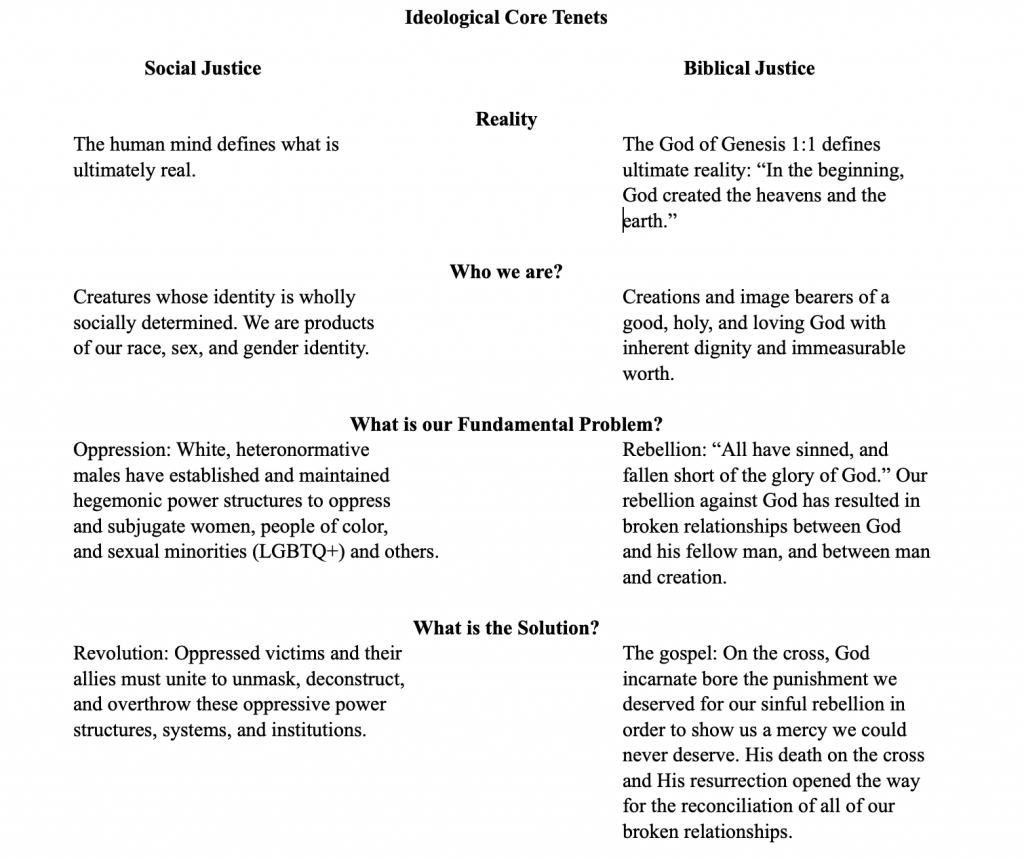
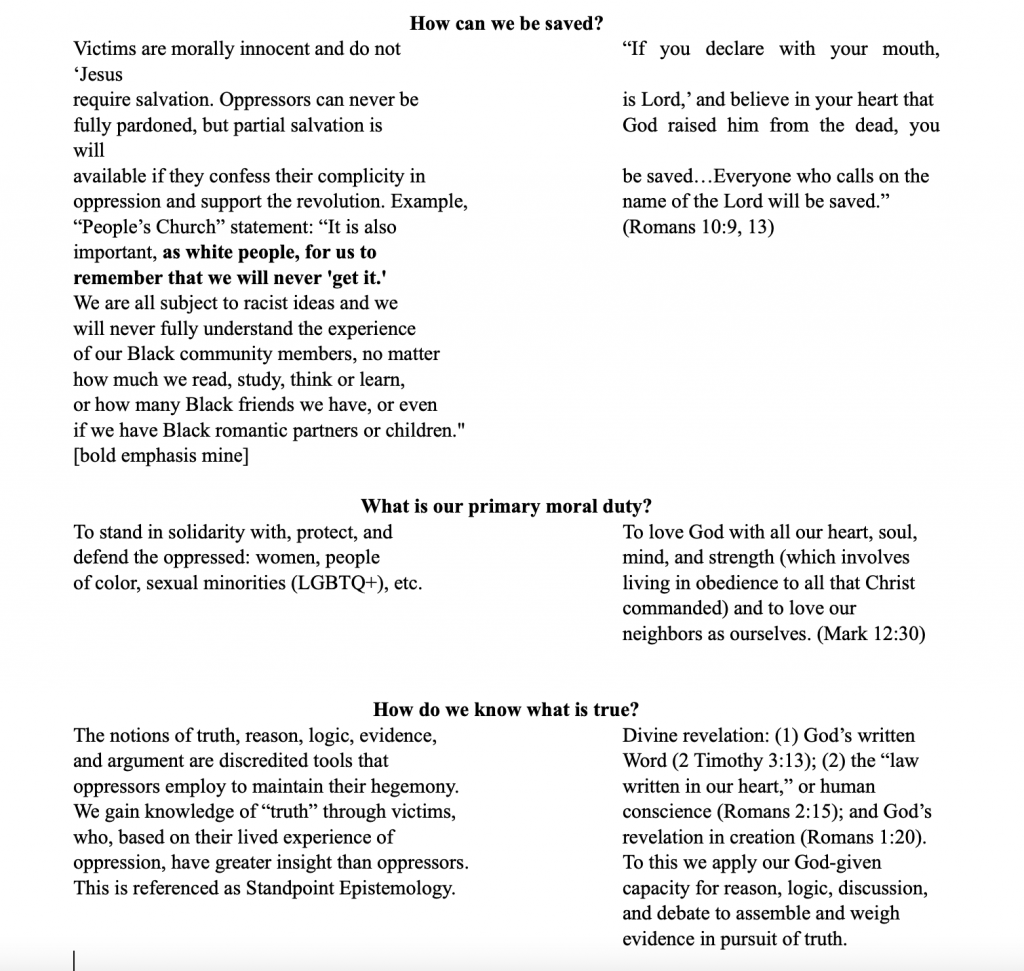
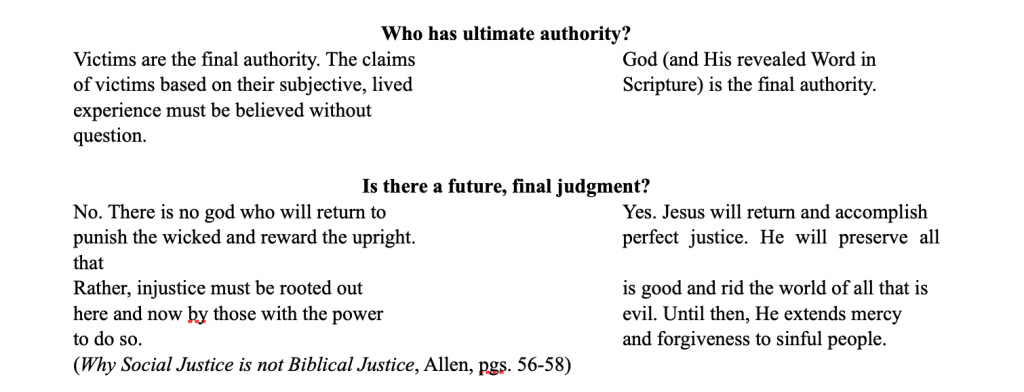
I find that Social Justice and Critical Race Theory are antithetical to the gospel of Jesus Christ. Those within the church who advocate Social Justice dismiss part of this philosophy but cannot dismiss the root of the tree. For example, they may embrace a belief in Jesus within the context of Social Justice. But they cannot divorce the source of Social Justice, Marxism, which is antithetical to any religious belief system. If the root of the tree is rotten, the fruit is as well.
Biblical justice can address every issue of sin concerning racism, whether personal or corporate. Biblical justice can address every evil and ill in the world, including such heinous perversions as human trafficking and the sexual exploitation of children. What is troubling is that the intellectual time and involvement in advocating Social Justice in its various forms has removed any effort of creating biblical justice strategies and answers to real issues facing all people. Instead of evangelizing and reaching the lost for Jesus, we have spent our time going through exercises which make no difference other than to sooth our perceived guilt. Instead of taking missional principles and developing strategies to reach different people groups, we have embraced a system which divides us and creates animosity within our ranks. Instead of proclaiming the transformative power of Jesus and the cleansing power of His Spirit, we have called into question an entire group of people’s testimonies over the years – that great cloud of witnesses to Jesus’ saving and sanctifying work. Instead of promoting unity in Christ, one race bound in love, we are promoting a philosophy steeped in a theory that at its core rejects, even hates God. And as bad as this is, we have ignored the real problems of communities of people who could use the transformational power of Jesus Christ, which has shown to produce social lift when embraced and has proven beneficial to the entirety of the community.
I have become WOKE – a new Woke. As I close, I challenge skeptics to read something other than Social Justice literature, most of which is written by white people condemning white people. I challenge you to read some of the literature listed below.
I am concerned for our world and all people. My call and ministry have led me to embrace all people, not just those who look like me or think like me. I pray that this man-made Social Justice/Critical Race Theory – which is antithetical to the gospel of Jesus Christ – will be extricated from our churches and truthfully and critically examined in our colleges and universities, so as to warn students of this deception. I pray that the transformative gospel of Jesus Christ will guide us to reach all people for Jesus, resulting in unity. I close with the words of the Apostle Paul:
“Here there is no Gentile or Jew, circumcised or uncircumcised, barbarian, Scythian, slave or free, but Christ is all, and is in all. Therefore, as God’s chosen people, holy and dearly loved, clothe yourselves with compassion, kindness, humility, gentleness and patience. Bear with each other and forgive one another if any of you has a grievance against someone. Forgive as the Lord forgave you. And over all these virtues put on love, which binds them all together in perfect unity. Let the peace of Christ rule in your hearts, since as members of one body you were called to peace. And be thankful.” — (Colossians 3:11-15)
Pastor Danny K. McDowell [email protected]
Books
Scott David Allen: Why Social Justice is not Biblical Justice (MUST READ)
Rod Dreher: Live Not by Lies: A Manual for Christian Dissidents (MUST READ)
Vincent Everett Ellison: The Iron Triangle (deals with politics – eye opening)
Candace Owens: Blackout (deals with politics – eye opening)
Noah Rothman: Unjust: Social Justice and the Unmaking of America
Bishop Aubrey Shines: Eight Questions about Race (black pastor’s take – eye opening)
Shelby Steele: White Guilt (MUST READ)
YouTube
Check out “YouTube” presentations by…
Dr. Voddie Baucham: “Cultural Marxism”; “Social Justice”; “Ethnic Gnosticism”; “Sermon on Racial Reconciliation”
Robert Woodson or anything from the Woodson Center
Dr. Jordan Peterson: “Identity Politics & The Marxist Lie of White Privilege” (warning language)
Dr. Glen Loury: “We’re Being Swept Along by Hysteria About Racism in America”
Monique Duson: “Race, Injustice, and the Gospel of Critical Race Theory”
Dr. John McWhorter: “Anti-Racism Hurts Black People” (Warning language)
* * * * * * * * * * *
Epilogue by Gary Kah
No amount of Social Justice protesting or blaming those of other colors will bring an end to the current crisis. It will only throw fuel on Socialism’s fire – causing more division and racial tension, not less.
Let us seek to produce “good fruit” on behalf of Christ wherever we can. We are all one blood, and if we’ve accepted Jesus in repentance, we’ll all be together in heaven one day. Black and white, we are one in Christ.
Jesus is the great equalizer. In Him, persons of all colors find acceptance, forgiveness, and eternal life. Our souls are of equal value to God. True Christians cannot be racists because we recognize that life is sacred and each one of us has been created by God in His own image.
We have been united by our common bond with Jesus our Savior, as recipients of His mercy and grace (Galatians 3:26-28). His unity is centered on eternal truth, unlike the world’s empty call for unity which is built upon deception and will ultimately lead to destruction – both temporal and eternal. For Holy Spirit-led unity and peace to prevail and our nation to be healed, all of us must humble ourselves as individuals before God, with repentant hearts, and submit to Jesus. He alone is our hope, in an otherwise hopeless world!
Have You Trusted Jesus as Savior?
God loves mankind – his greatest creation. His perfect will is for all to be saved and none to be lost (John 3:15-18, 5:24). However, He makes clear that only those who have accepted (believed in) His divine Son, Jesus Christ, will be spared from the punishment of hell and will spend eternity with Him (Matthew 10:28 & II Peter 2:4-10).
If you have not accepted Jesus Christ as your personal Savior, you must believe that Jesus is who He says He is and that He paid the penalty for your sins with His death on a cross. Accept His free gift of eternal life which He can offer because He conquered death through His resurrection. Then, with the help of His Holy Spirit, turn from your old ways of living (repent) and follow Him. Take a moment and tell the Lord that you desire to receive Him into your life and ask His Holy Spirit to dwell inside of you and lead you into all truth.
Once you have settled this most important matter, be devoted in your relationship with the Lord. Spend time with Him by reading His Word (the Bible) and talking to Him (praying) daily. As you grow in His grace, He will direct you and open doors showing you how best to serve Him. With Jesus at the helm, your life and eternity are secure in His care. No situation or power of the enemy will be able to separate you from the love of Christ!
“Who shall separate us from the love of Christ? Shall trouble or hardship or persecution or famine or nakedness or danger or sword?… No, in all these things we are more than conquerors through him who loved us. For I am convinced that neither death nor life, neither angels nor demons, neither the present nor the future, nor any powers, neither height nor depth, nor anything else in all creation, will be able to separate us from the love of God that is in Christ Jesus our Lord.” — Romans 8:35, 37-39